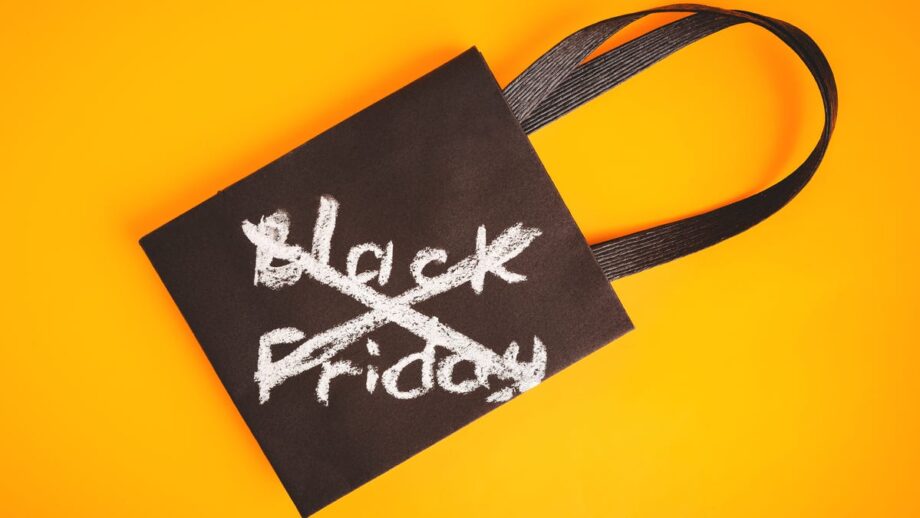Black Friday is one of the biggest shopping events of the year, and it’s easy to see why. The sales extravaganza offers a dizzying array of deals, including plenty that have already dropped. As someone who loves a bargain, I’ve been a Black Friday shopper for years. But this time around, I’m opting out.
Here’s why, and what you should consider if you’ve been thinking of skipping the event, too.
Read more: CNET Survey: Holiday Shoppers May Have $291 in Deliveries at Risk of Theft. How to Keep Porch Pirates at Bay
What to consider before shopping Black Friday sales
Before you reach for that credit card next weekend, here’s what personal finance experts suggest.
Don’t assume you’re getting the lowest price
There are many genuinely good Black Friday deals, but that doesn’t mean every deal is the best bargain. Some stores may mark up items to make their “sale” prices look more appealing.
“Never take a Black Friday sale at face value,” said Leslie Tayne, financial attorney and CNET expert reviewer and contributor. “Start by checking the historical price of an item to see if the Black Friday price is a good deal (there are apps and browser extensions that can help you find this information quickly). It’s also important to check the price across several retailers.”
CNET editors scour sales to make sure you’re getting the best deals. If you are shopping Black Friday, check out their recommendations. You can also use browser extensions, cash-back apps and price-tracking tools like Camelcamelcamel to monitor price history and changes and find other discounts.
Time your purchase right
When you’ll find the best bargains depends on what you want to buy. According to an Adobe Analytics forecast, here’s when you’ll get the best prices for specific categories this holiday season:
- Furniture: Thanksgiving day (Nov. 28)
- Appliances: Thanksgiving day (Nov. 28)
- Toys: Thanksgiving day (Nov. 28)
- Sporting goods: Thanksgiving day (Nov. 28)
- TVs: Black Friday (Nov. 29)
- Computers: Saturday (Nov. 30)
- Apparel: Cyber Monday (Dec. 2)
- Electronics: Cyber Monday (Dec. 2)
Compare products before you buy
Black Friday deals can sway you to buy a product that’s inferior to the one you’d normally buy. For example, a deeply discounted off-brand TV may cost considerably less than the top-of-the-line TV you’ve been eyeing, but if the quality is lower, the savings may not be worth it.
“Keep an eye out for derivative products,” Tayne added. “Make sure you’re getting the same model you’d find throughout the rest of the year.” Make sure you compare product features and prices to find the best item — rather than one that happens to be on sale.
Avoid impulse buying
I’m a sucker for a sale. I’ve gotten better, but there are still times when a slashed price tempts me to waste money on something I don’t need because it seems too good to pass up. Combine this with a limited-time-only window, and I can get into real trouble.
Limited-time offers are designed to make you buy before you fully think it over. If you know a deal is expiring soon, you may be pressured to purchase for fear of missing out. Stores bank on it.
“A lot of people will buy stuff that they don’t need because they’re told that these discounts will only last for a limited time, but this is just a classic sales trick that retailers use to rush you into making a purchasing decision,” said Daniel Braun, credit card expert and CNET expert reviewer and contributor. “The truth is that impulsive shopping and overspending on nonessential items can actually cost you more money than it saves you around Black Friday.”
If you’re overwhelmed by sales, hit pause
Black Friday used to happen the day after Thanksgiving, and it was largely limited to the bargains you saw in the newspaper circulars. Now, the deals start as early as October and bleed into Cyber Monday.
With a seemingly endless array of retailers offering Black Friday discounts online and in-store, you might be feeling stressed or overwhelmed by all the deals. Instead of panic buying, take a minute to refocus. Ignore the deals and turn the attention back to your budget and shopping list.
What I do instead of shopping Black Friday sales
Skipping Black Friday doesn’t mean I’m not interested in saving money this holiday season — it just means I’m using other strategies to do it.
I make a budget — and stick to it
Many consumers notoriously spend beyond their means this time of year. A CNET Money survey found that nearly two-thirds (72%) of shoppers plan on making financial sacrifices or tradeoffs this year to afford holiday expenses, and 24% plan on using credit cards or buy now, pay later plans to cover holiday costs.
To avoid splurging, I create a holiday shopping budget. I start by identifying how much I’d like to spend for the entire season, then divide that into categories, like entertainment and gift-giving. I then divide my gift-giving budget further by deciding how much I’ll spend on each person on my list. This budget gives me a framework I can reference each time I make a spending decision.
I find other ways to save
Sales events aren’t the only way to get a great deal on your purchases. For example, if you’re interested in a big-ticket item like a TV, there are plenty of other ways to cut your costs.
“A lot of people forget that buying used, certified refurbished or even buying last year’s model is an option,” said Braun. “Sometimes buying stuff that is not the ‘latest and greatest’ can still get you really good deals at any time of the year, not only around Black Friday.”
Just note that while you may save money on refurbished or restored electronics, you should make sure you buy from a reputable retailer and get a warranty if you’re worried.
In addition, consider buying some of your gifts second-hand to reduce your carbon footprint and lower your overall costs. I’ve found great gifts on Facebook Marketplace, from gently used, high-end kitchen appliances to hard-to-find collectibles. You can even take it a step further and search your local Buy Nothing group. You might be amazed at the things people are willing to give away for free just to declutter their homes.
Getting a head start on the holiday shopping season
Scrambling to find last-minute gifts can force you to make some less-than-great buying decisions. By shopping throughout the year, I have a better likelihood of finding the items I want on sale.
This also helps me because it gives me a full year to plan and put money toward holiday gifts, rather than trying to squeeze my budget into a few paychecks at the end of the year. Plus, you save yourself stress by building a stockpile of presents before the holiday rush.
If you don’t want to rush your holiday shopping next year, consider setting up a sinking fund to give yourself more time to hit your gift goal.
Should you shop Black Friday?
It depends. If you take the time to do your homework and don’t let your emotions get the better of you, you can score some great deals. Stay tuned to CNET’s Black Friday coverage for the latest deals and shopping tips.
If you’re like me, and you find Black Friday simultaneously overwhelming and dangerously tempting, you may be better off skipping it. The important thing is knowing the traps to watch out for and staying mindful of how much you can afford to spend.
“There are great Black Friday deals to take advantage of,” said Braun, “but people need to really think hard about whether they have the intention of spending money on certain items in the first place.”
Tayne agrees. “Remember, a deal is only good if you’re buying something you actually need and it’s within your budget. If you’re swayed by the hype and pressure of limited-time offers, you could end up starting the new year in debt instead.”





